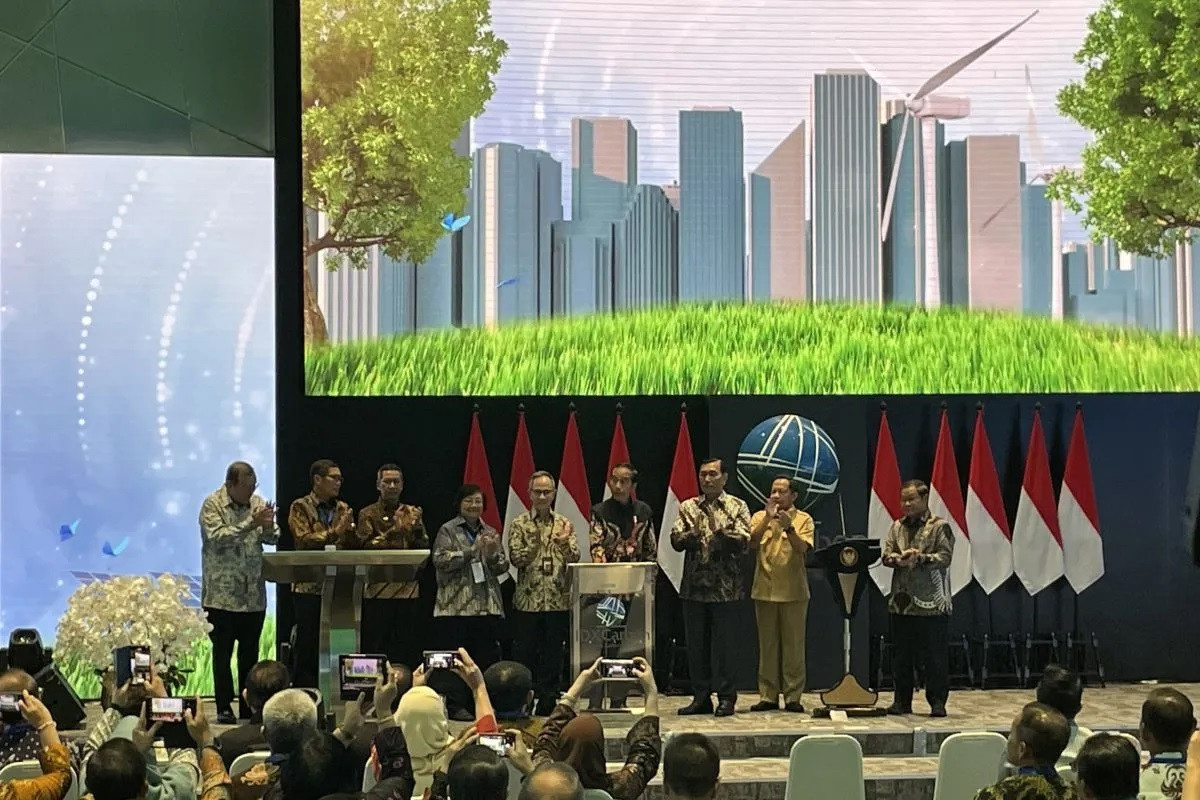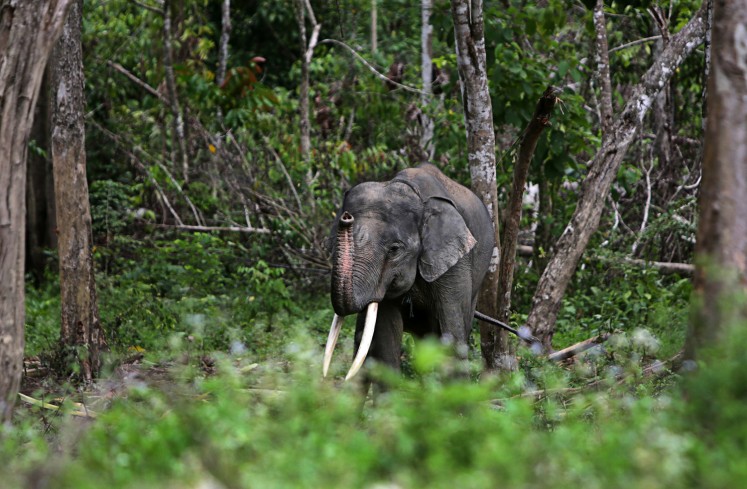Popular Reads
Top Results
Can't find what you're looking for?
View all search resultsPopular Reads
Top Results
Can't find what you're looking for?
View all search resultsPolitical will in carbon trade
Hoping is not good enough. Incentives and disincentives must compel polluters to engage.
Change text size
Gift Premium Articles
to Anyone
I
ndonesia’s carbon exchange launched with considerable fanfare last week. President Joko “Jokowi” Widodo himself visited the Indonesia Stock Exchange (IDX) to open the market on the first day of trading, Sept. 25.
The establishment of IDX Carbon is an important milestone in Indonesia’s efforts to reduce carbon emissions. While there are critics of the concept, carbon trading has become a key instrument around the world to ensure that emissions are cut first and foremost where it is cheapest to do so.
The energy transition in our country is going to be extremely costly as it is, so any measure to increase efficiency in the process is welcome.
The government assigned state-owned banks and oil and gas company Pertamina to kickstart the activity. Someone has to make a start, after all.
When and to what extent private-sector entities will become engaged remains to be seen.
Ninety-nine coal-fired power plants are supposed to trade in the initial phase of the exchange under a cap-and-trade mechanism, whereby the government assigns a quota for the amount of carbon they can emit over a certain period of time. Those who exceed their quota must buy carbon credits for the excess emissions, while those who emit less than the quota can sell credits.
Mahendra Siregar, chairman of the Financial Services Authority (OJK) which oversees trading activity on the platform, used his opening remarks to express hope that the coal plants would start transacting before year-end.
Hoping is not good enough. Incentives and disincentives must compel polluters to engage.
Under a cap-and-trade system, it is all about the cap. With a carbon tax system, it is all about the tax. Both of those mechanisms play a role in Indonesia’s carbon exchange, and their effectiveness requires caps and taxes that hurt.
When the President said that IDX Carbon was a “real contribution to fight with the world against the climate crisis," he must be assuming that the incentives and disincentives are potent.
It is important to understand that that is an assumption, not a given. IDX Carbon is a platform to improve resource allocation in the energy transition, but it is not in and of itself evidence of the government’s commitment to that transition. And it certainly will not in and of itself affect change.
If we find that there is insufficient progress in bringing down carbon emissions in line with timetables for carbon neutrality, the government must tighten quotas or increase taxes, once all the regulations for the latter are in place. That, rather than a launch ceremony, will truly demonstrate commitment.
The banks participating in the early trade may see IDX Carbon as an opportunity to polish up their image with some environmental, social and corporate governance (ESG) credentials. Other companies, particularly in the private sector and those seeking international investment or funding, can also be expected to buy some credits to offset their own emissions.
IDX Carbon offers the “good” players a way to exhibit “goodwill”, but that motivator alone will not affect the needed broad change across the country. In public policy, an effective system is one that produces good outcomes even with bad actors.
The carbon exchange, therefore, must be embedded in a policy framework with clear rules to delineate the rights and obligations of all parties and ensure rewards and penalties are properly assigned.
That is a very difficult task. To prevent fraud and greenwashing, Indonesia must learn from the experiences of other countries to avoid repeating mistakes and adopt best practices. Regarding certifications and approvals, it will be crucial for us to set national standards that are in line with global ones.
If we are not careful, we will open up a whole new space for crime and corruption. Global accountability will keep our authorities on their toes.
One currency matters most of all for trading on the new exchange, and it is not the rupiah. It is the currency of political will.











